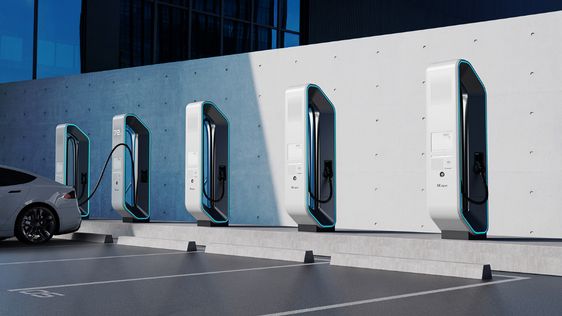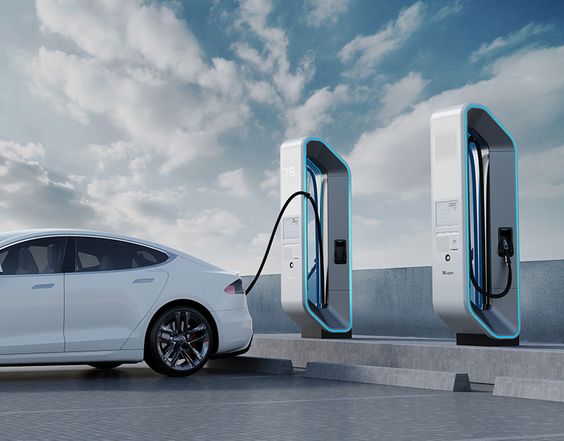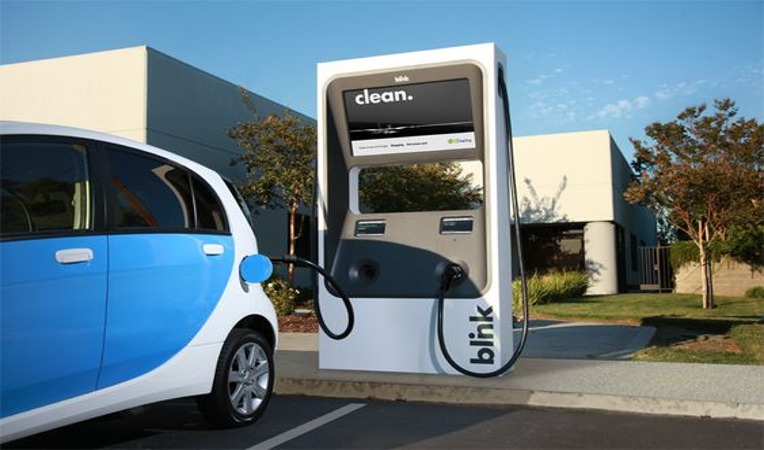Fast charging an electric vehicle is essential for minimizing downtime and maximizing convenience. To achieve efficient charging, you must ensure that the electric car charger you select has a high power output, typically measured in kilowatts. Look for chargers with level 3 charging capabilities, also known as DC fast chargers, which can deliver a significant amount of charge quickly.
When utilizing public charging stations, consider using apps or websites to locate the nearest fast chargers along your route. Many electric vehicle manufacturers also provide their network of fast chargers to support their customers on long journeys. It’s essential to be mindful of potential degradation due to frequent use of fast charging, so incorporating a balance of regular and fast charging is beneficial for maintaining battery health in the long term.
Additionally, investing in home-charging infrastructure with a level 2 charger can provide added convenience and flexibility for daily recharging needs. By implementing these strategies and being aware of optimal charging options, electric vehicle owners can effectively streamline their recharging process and make the most out of their driving experience.
Which is the best EV charger in UK?

Regarding electric car chargers in the UK, several top options stand out for their reliability and performance. One of the best EV chargers in the UK is the Pod Point Solo charger, known for its easy installation and compatibility with various electric car models. The EO Mini Pro 2 is another popular choice, offering intelligent features and a compact design suitable for domestic use.
The Andersen A2 home charger has gained praise for its sleek aesthetics and advanced power management capabilities for commercial settings. Meanwhile, the Wallbox Pulsar Plus offers fast charging speeds and user-friendly interfaces, making it a top contender. Another notable option is the EVBox Elvi charger, which boasts open protocol communication and customizable power levels for an enhanced user experience.
Lastly, considering future-proofing and scalability can further enhance the value of an EV charger. Therefore, looking into EO Genius or MyEnergi Zappi may provide long-term benefits due to their innovative technology and adaptability to evolving electric vehicle requirements.
How much does an electric car charger cost UK?

The cost of an electric car charger in the UK can vary depending on the type and brand. A basic home charging unit can start at around £300, while more advanced models with faster charging capabilities can cost upwards of £1000.
Public charging stations offered by service providers may also charge a fee for usage, and the pricing structure often varies based on location and time of use. Additionally, some employers offer workplace charging facilities for their employees, which may be free or require a small fee.
Furthermore, there are government grants available to help offset the cost of purchasing and installing electric car chargers at home. These grants can cover up to 75% of the cost, up to a certain limit.
It’s important to consider installation costs as well, as these can vary based on electrical requirements and any additional work needed. Consulting with a qualified installer or doing thorough research before making a purchase is recommended to get an accurate understanding of all associated costs.
Do all electric cars use the same charger UK?
In the UK, electric cars typically use either a Type 1 or a Type 2 charger, also known as a slow or fast charger, respectively. The Type 1 charger is mainly used by older electric car models and has a lower charging capacity than the more modern Type 2.
With the goal of creating standardization, most public charging stations in the UK are equipped with a universal connector that can accommodate both types of chargers, ensuring compatibility with all electric vehicles. However, it’s still important for electric car owners to check whether their vehicle requires a specific type of charger before using public charging points.
It’s also worth noting that some newer electric cars come with rapid-charging capabilities using specialized CCS or CHAdeMO connectors for quick and efficient charging sessions.
Overall, while there is a degree of standardization in the UK for electric car chargers, it’s important for drivers to be aware of the specific requirements of their vehicle and to seek out compatible charging options accordingly.
Is Tesla charging free in UK?
Aside from Tesla’s Supercharger network, numerous electric car chargers from various companies and organisations are available throughout the UK. These include rapid chargers that can charge a vehicle to about 80% capacity in as little as 30 minutes and slower units suitable for overnight charging at home or work.
With the increasing popularity of electric vehicles in the UK, many public locations like shopping centres, hotels, and parking facilities now offer electric car charging infrastructure. Some local councils have also installed on-street chargers to accommodate residents needing access to private parking.
As demand for electric car charging grows, so does the need for a comprehensive national infrastructure. The UK government has invested significant funding to expand the availability of electric car chargers across the country, aiming to reach more people and promote sustainable transportation options.
Overall, while Tesla offers limited free charging through its Supercharger network for some older vehicle models and referral program participants in the UK, there are increasingly widespread opportunities for electric vehicle owners to access charging infrastructure nationwide.
Tesla, J1772, CCS, CHAdeMO
Charging Time and Range
When considering electric car chargers, there are several essential standards to be aware of: Tesla’s proprietary Supercharger network, the J1772 standard used by many North American manufacturers, and the CCS (Combined Charging System) and CHAdeMO standards commonly employed in Europe and Asia. Each of these standards offers different charging times and range capabilities.
Tesla’s Superchargers are known for their rapid charging speeds, providing a significant range boost in a short amount of time. However, they are exclusive to Tesla vehicles. The J1772 standard is widely used in North America and supports a range of charging speeds, making it compatible with many electric cars on the market.
For European and Asian drivers, the CCS and CHAdeMO standards provide efficient charging solutions with varying speed levels and compatibility across different electric car models.
Understanding these different electric car charger standards can help drivers make informed decisions about their charging needs, especially when planning longer journeys or relying on public infrastructure. It’s essential to research which charging standard your vehicle supports and locate appropriate charging stations to ensure seamless travel experiences.
Importance of Electric Car Chargers
Types of Chargers
Electric car chargers play a crucial role in enabling electric vehicle owners to conveniently charge their vehicles. There are different types of electric car chargers available, each offering various charging speeds and compatibility with different vehicles.
Level 1 chargers are the most basic and typically come with the vehicle, allowing for slow charging using a standard household outlet. Level 2 chargers provide faster charging times and require installation by an electrician for connection to a higher voltage outlet.
DC fast chargers offer rapid charging, ideal for long-distance travel, and are typically found at public charging stations. These chargers can replenish a significant portion of a vehicle’s battery in just 30 minutes.
Understanding the various types of electric car chargers is essential for electric vehicle owners to make informed decisions about which charger will meet their needs. Additionally, knowing where to find these chargers along their regular routes can help owners plan effectively for longer journeys.
Impact and Growth of Electric Car Chargers
The impact of electric car chargers has been significant in spurring the growth of electric vehicles (EVs) and promoting their widespread adoption. With an increasing number of charging stations being installed globally, drivers are experiencing improved convenience and accessibility when it comes to recharging their EVs. Not only does this alleviate range anxiety, but it also encourages more consumers to consider making the switch to electric vehicles.
The installation of electric car chargers has not only benefited individual drivers but has also contributed to the development of infrastructure for sustainable transportation. Governments, businesses, and communities are investing in these charging networks, recognizing their potential to reduce reliance on fossil fuels and lower carbon emissions.
As a result, the increased availability of charging infrastructure is helping to drive the growth of the EV market by enhancing consumer confidence and addressing concerns about range limitations. Additionally, it has created new economic opportunities through job creation and investment in clean energy technologies as part of the transition toward a greener automotive landscape. Overall, electric car chargers are playing a pivotal role in shaping the future of transportation by driving innovation and fostering environmental sustainability.




